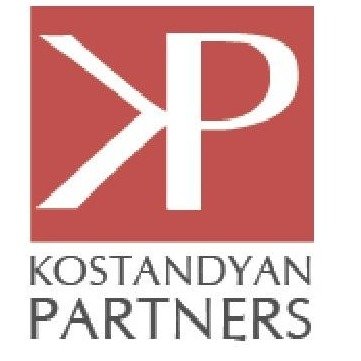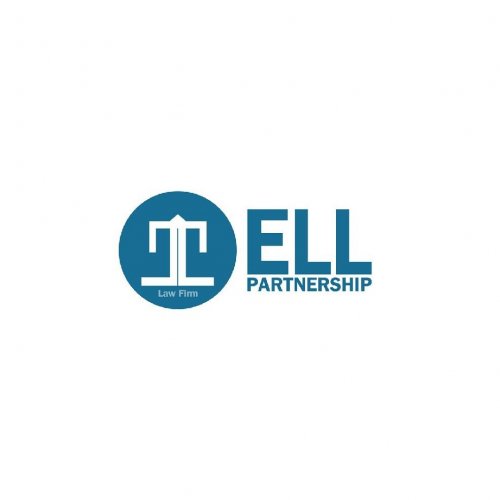Best Public-Private Partnerships (PPP) Lawyers in Armenia
Share your needs with us, get contacted by law firms.
Free. Takes 2 min.
Or refine your search by selecting a city:
List of the best lawyers in Armenia
About Public-Private Partnerships (PPP) Law in Armenia
Public-Private Partnerships, commonly known as PPPs, are cooperative agreements between government bodies and private sector entities. These partnerships are developed to finance, build, and operate projects such as infrastructure, public services, and development initiatives. In Armenia, PPPs have become increasingly important as the country seeks sustainable methods for developing infrastructure and delivering essential services. PPPs in Armenia are governed by specific laws and regulations to ensure transparency, fairness, and mutual benefit for both the public and private partners involved.
Why You May Need a Lawyer
Engaging in a PPP in Armenia can be a complex legal process. Legal assistance may be needed for several reasons, including:
- Drafting or reviewing PPP agreements to ensure compliance with Armenian law
- Navigating the government tender or bidding process
- Securing permits, licenses, or approvals from regulatory authorities
- Understanding the allocation of risks, responsibilities, and rewards between parties
- Addressing disputes or contract breaches between public authorities and private companies
- Ensuring the financing structure of the PPP is lawful and effective
- Protecting intellectual property or investment interests
- Adhering to environmental, labor, and operational standards set by Armenian law
Having a knowledgeable lawyer can help avoid costly mistakes and ensure your interests are protected throughout the PPP process.
Local Laws Overview
The regulatory framework for PPPs in Armenia includes several key laws and government decrees. The main legal document is the Law on Public-Private Partnership adopted in 2019. This law sets out the principles, procedures, and criteria for establishing and implementing PPPs. It ensures that public interests are safeguarded and fair competition is promoted.
Key aspects of PPP law in Armenia include:
- Mandatory public competitive selection for most PPP projects
- Clear definitions of project stages, from proposal and feasibility study to contract implementation and oversight
- Detailed requirements for transparency, public disclosure, and anti-corruption measures
- Specific rules on risk allocation and financial arrangements
- Clear dispute resolution mechanisms, often including arbitration
- Provisions regarding early termination, step-in rights, and force majeure
- Requirements for social and environmental impact assessments
PPP agreements must comply with a variety of other Armenian laws, such as those governing procurement, taxation, land use, labor, and environmental protection. The Ministry of Economy of Armenia is the central authority overseeing PPP policy and project implementation.
Frequently Asked Questions
What is considered a Public-Private Partnership in Armenia?
A PPP is an agreement between a public authority and a private entity to deliver public services or infrastructure through shared investment, risk, and reward over a specified period.
Which sectors are commonly developed under PPPs in Armenia?
PPPs in Armenia are most often used in sectors such as transportation, energy, healthcare, education, utilities, and municipal services.
How are PPP projects selected and approved?
Projects are usually identified by government agencies or private initiators and then undergo competitive selection procedures overseen by the relevant ministries and the Ministry of Economy.
What types of PPP contracts are allowed?
Common forms include Build-Operate-Transfer (BOT), Build-Own-Operate (BOO), concession agreements, and service contracts.
Can foreign investors participate in Armenian PPPs?
Yes, foreign companies and investors are allowed to participate in PPP projects in Armenia, subject to local regulation and national security considerations.
What are the key risks involved in PPPs?
Primary risks include legal and regulatory changes, financial uncertainty, changes in demand, construction delays, and potential disputes between the parties.
How are disputes resolved in PPP projects?
Disputes may be settled through negotiation, mediation, or arbitration, with the specific process outlined in the PPP contract.
What are the main regulatory bodies involved in PPP oversight?
The Ministry of Economy is the primary regulator, along with sector-specific ministries, the Public Procurement Agency, and regulatory authorities depending on the project type.
What transparency measures are in place for PPPs?
The law requires public disclosure of major contract terms, regular reporting, and public monitoring to ensure accountability and reduce corruption.
How long do PPP projects typically last?
PPP contracts commonly range from 5 to 30 years, depending on the sector, investment, and negotiated terms.
Additional Resources
If you are seeking more information or assistance regarding PPPs in Armenia, consider consulting the following resources:
- Ministry of Economy of the Republic of Armenia - PPP Policy and Project Oversight
- Public Procurement Agency - Regulations on competitive bidding and procurement
- Chamber of Advocates of Armenia - Legal professionals directory
- Business Armenia - Guidance for foreign investors
- International organizations such as the World Bank or EBRD, which provide guidance and support for PPP development projects
For specific laws and regulations, refer to the official legal portal of Armenia or consult with a qualified legal professional.
Next Steps
If you are interested in taking part in a Public-Private Partnership in Armenia, follow these steps to protect your interests:
- Define your project goals and identify the type of PPP structure that best meets your needs
- Gather all necessary documentation, including project feasibility studies and financial models
- Consult with a qualified Armenian lawyer who specializes in PPP law and related fields
- Contact the Ministry of Economy or other relevant agencies for procedural guidance
- Ensure compliance with all legal requirements before submitting any project proposals or tenders
- Review all contract terms carefully and negotiate areas of concern with experienced legal counsel
Legal advice early in the process can help you avoid common pitfalls and navigate Armenia’s regulatory environment effectively. If you are unsure where to start, reaching out to a legal professional is always a sensible first step.
Lawzana helps you find the best lawyers and law firms in Armenia through a curated and pre-screened list of qualified legal professionals. Our platform offers rankings and detailed profiles of attorneys and law firms, allowing you to compare based on practice areas, including Public-Private Partnerships (PPP), experience, and client feedback.
Each profile includes a description of the firm's areas of practice, client reviews, team members and partners, year of establishment, spoken languages, office locations, contact information, social media presence, and any published articles or resources. Most firms on our platform speak English and are experienced in both local and international legal matters.
Get a quote from top-rated law firms in Armenia — quickly, securely, and without unnecessary hassle.
Disclaimer:
The information provided on this page is for general informational purposes only and does not constitute legal advice. While we strive to ensure the accuracy and relevance of the content, legal information may change over time, and interpretations of the law can vary. You should always consult with a qualified legal professional for advice specific to your situation.
We disclaim all liability for actions taken or not taken based on the content of this page. If you believe any information is incorrect or outdated, please contact us, and we will review and update it where appropriate.
Browse public-private partnerships (ppp) law firms by city in Armenia
Refine your search by selecting a city.

















